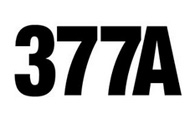Since 2010, Fridae’s been following the case of Tan Eng Hong v. Attorney-General. It’s a landmark case that challenges the validity of section 377A, Singapore’s gay sex law, by claiming that it violates the Constitution – the highest law in the land.

This morning, the case received a hearing at the High Court under His Honour Justice Quentin Loh. Human rights lawyer M. Ravi faced off against Aedit Abdullah from the Attorney-General’s Chambers (AGC).
Proceedings began at 10.30am and closed at 1.00pm. No members of the public or media were admitted into the court. As such, our report below is based on the legal submissions, as well as an interview with paralegal Claudia Powers, who is aiding Ravi in his case.
The arguments
Ravi’s case for the repeal rests on two articles of Singapore’s Constitution. First, Article 9(1) states: No person shall be deprived of his life or personal liberty save in accordance with law. “Law” here has been conclusively agreed to mean “natural justice”, not just what’s in the legal books.
According to Ravi, s377A does not meet the requirements of natural justice, since it is “inherently absurd, arbitrary [and] vague”. It’s absurd and arbitrary because it persecutes people born with immutable sexual orientations, and it’s vague because its interpretation rests on the extremely subjective concept of “gross indecency”. Then there’s the fact that the law makes it dangerous for victims of homosexual assault and gay domestic abuse to report these crimes – hardly an example of natural justice.
Second, Article 12(1): All persons are equal before the law and entitled to the equal protection of the law. Section 377A discriminates based on sexual orientation, which been recognised as contravening legal principles of equality in Hong Kong, India, Nepal, Fiji, the US, Portugal, Chile and Peru. The law’s also discriminatory within the homosexual community – there’s no convincing reason why gay male sex is criminalised while lesbian sex goes is legally sanctioned.
The AGC’s case, on the other hand, fundamentally rests on the principle of “public morality”, a concept explicitly referred to in the Constitution. Abdullah claims that the Singaporean public still clearly views gay sex as immoral, quoting Singapore’s Nanyang Technological University’s study that found that by 2010, 64.5% of Singaporeans still held negative attitudes towards homosexuals, with 25.3% expressing positive attitudes and 10.2% neutral. He further counters that comparisons of Singapore to Hong Kong, the US and India are invalid, given that their legal systems formally recognise a right to individual privacy, whereas Singapore’s doesn’t.
(Lawyers’ arguments often bear no relation to their personal views. Nonetheless, this reporter must remark that the language used in the AGC’s written submission is distressingly homophobic. It insists that s377A is necessary for “preventing the mainstreaming of gay lifestyles” and warns of the “incrementalist homosexual agenda” of gay activists. It also analogises, bizarrely, that the law is non-discriminatory in the same way that the Environmental Public Health Act is agenda-blind when it prohibits the use of human excreta as manure. Yes: in effect, gay sex is being compared to faeces.)
The judge
Justice Quentin Loh has given no overt sign of being swayed by either parties’ arguments. Perhaps one encouraging signal was that he refused to take into account the AGC’s argument that s377A serves public health interests by supposedly limiting the spread of HIV.
His focus, instead, has been on Ravi’s claim that s377A is arbitrary because it doesn’t discriminate against lesbians. Clearly, he had done independent research into this matter, for he noted how over history, perceptions of homosexuality had changed.
He described how in Classical Greece both gay male and gay female sex was widely accepted, while in later Judaeo-Christian contexts only gay male sex was actively and brutally punished, and how perceptions had shifted again from the time of Oscar Wilde’s London to the hippie movement. As for how and why this differentiation between male and female homosexuality occurred, “nobody has come up with a satisfactory answer,” he stated.
As expected, Justice Loh decided to reserve his judgment. Readers following this issue will know that he is also the judge for Gary Lim and Kenneth Chee v. Attorney-General, another ongoing constitutional challenge to s377A, focused principally on Article 12(1) of the Constitution. It’s expected that he will deliver his judgment on both cases at the same time.
Ordinarily, following a reserved judgment, a decision is announced in a matter of weeks. However, it can also takes years. There’s no knowing how long it’ll take, or what his decision will be. What we do know is that he’s taking this issue very seriously. Fridae will keep you updated on the outcome.
A note on the background of the case: Tan Eng Hong v. Attorney-General began as a defence for masseur Tan Eng Hong when he was caught having sex in a public toilet. He was prosecuted under both the gay sex law and the public obscenity law. Human rights lawyer M. Ravi took up the case as a means to battle against the very constitutionality of s377A. The Attorney-General’s Council dropped the s377A charge, and the judge ruled against the possibility of a constitutional challenge. At the Court of Appeal, judges ruled that he would indeed be able to challenge the judgment. This chain of events has led to the current hearing.
